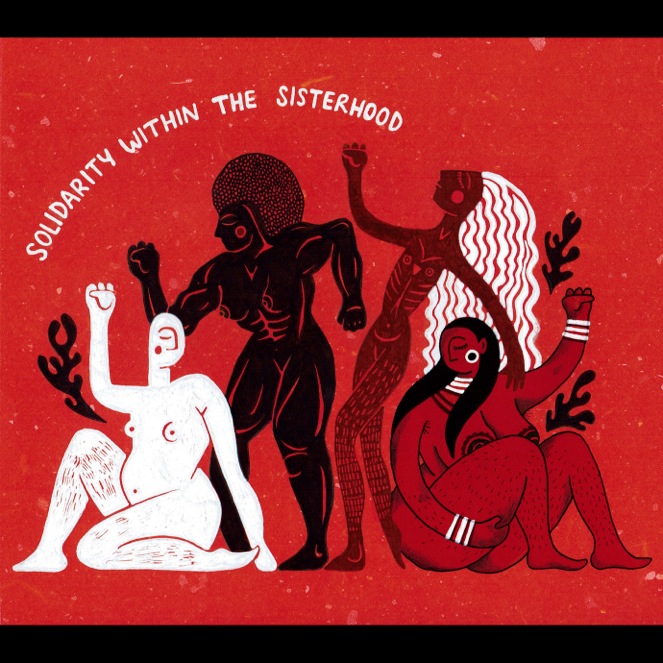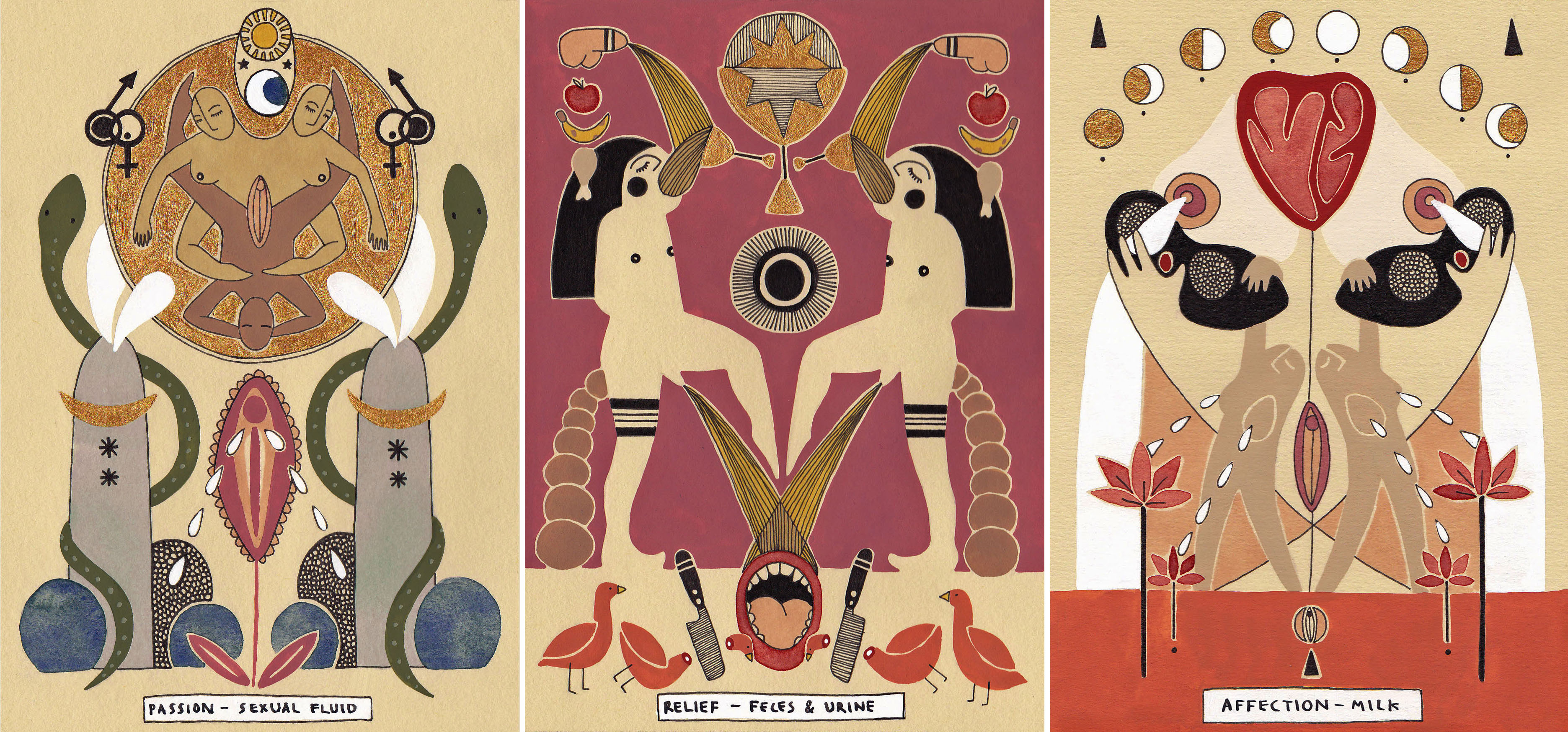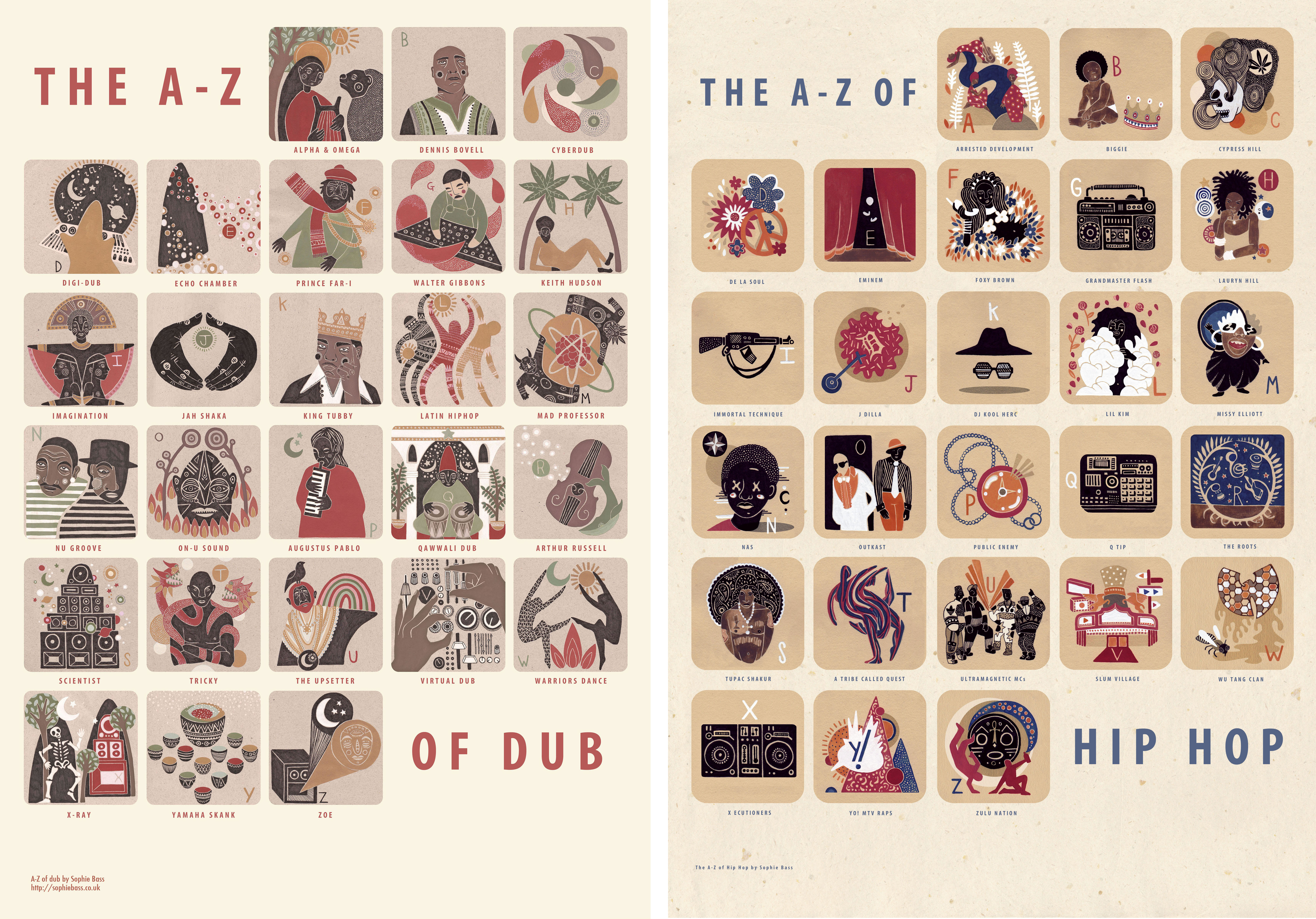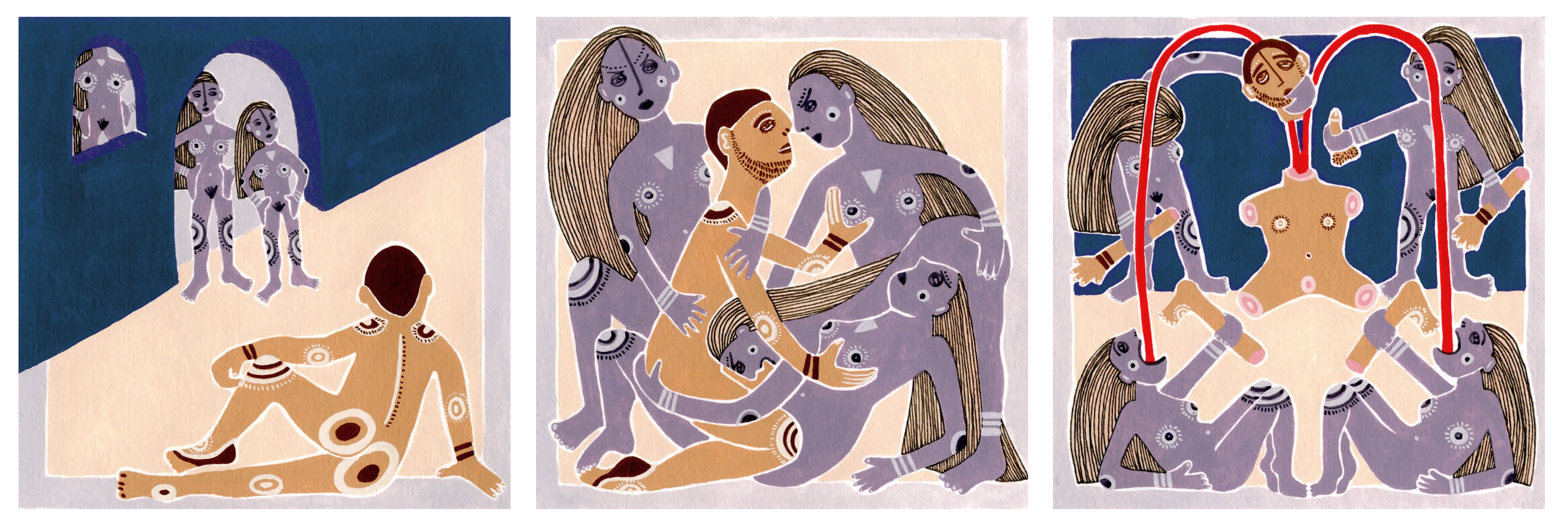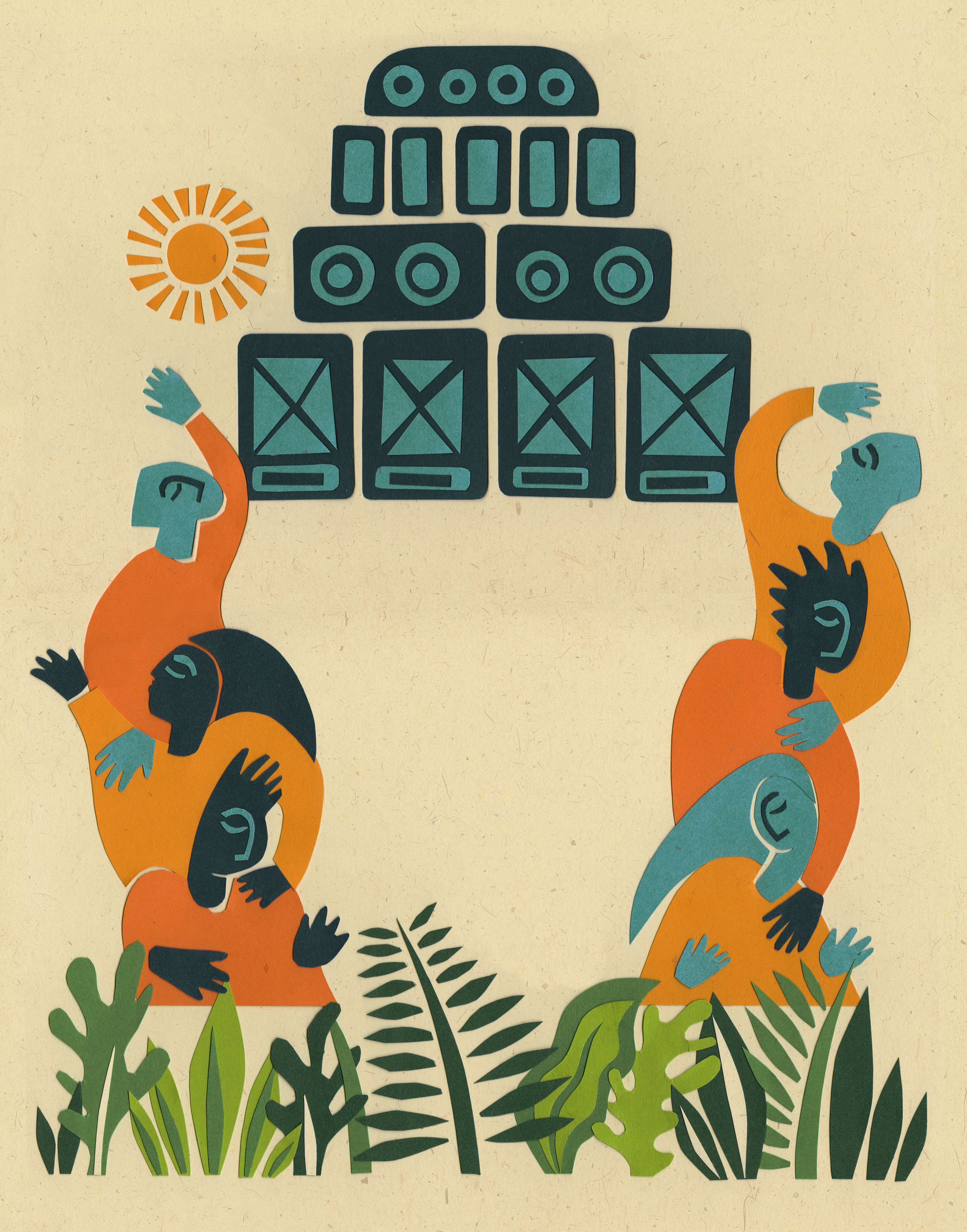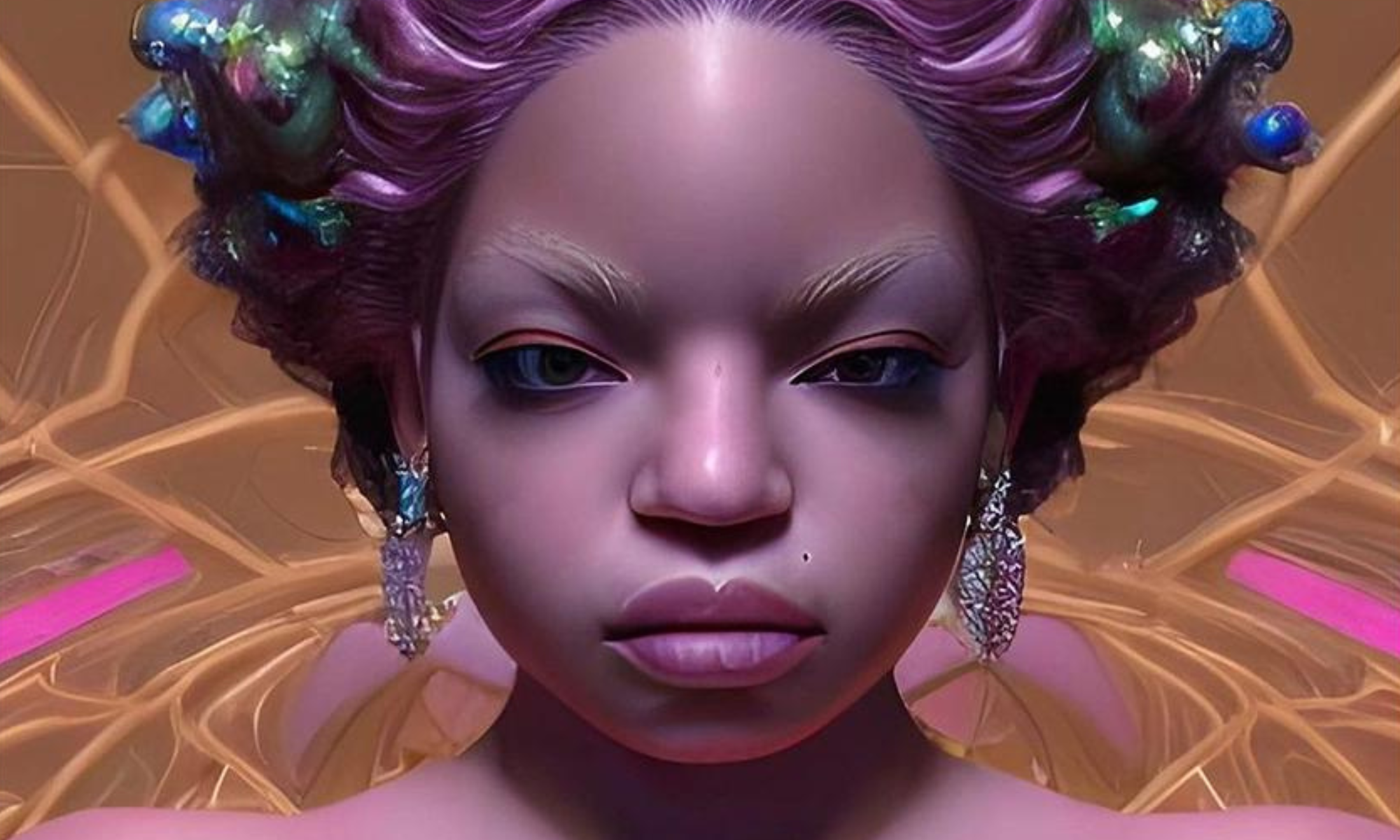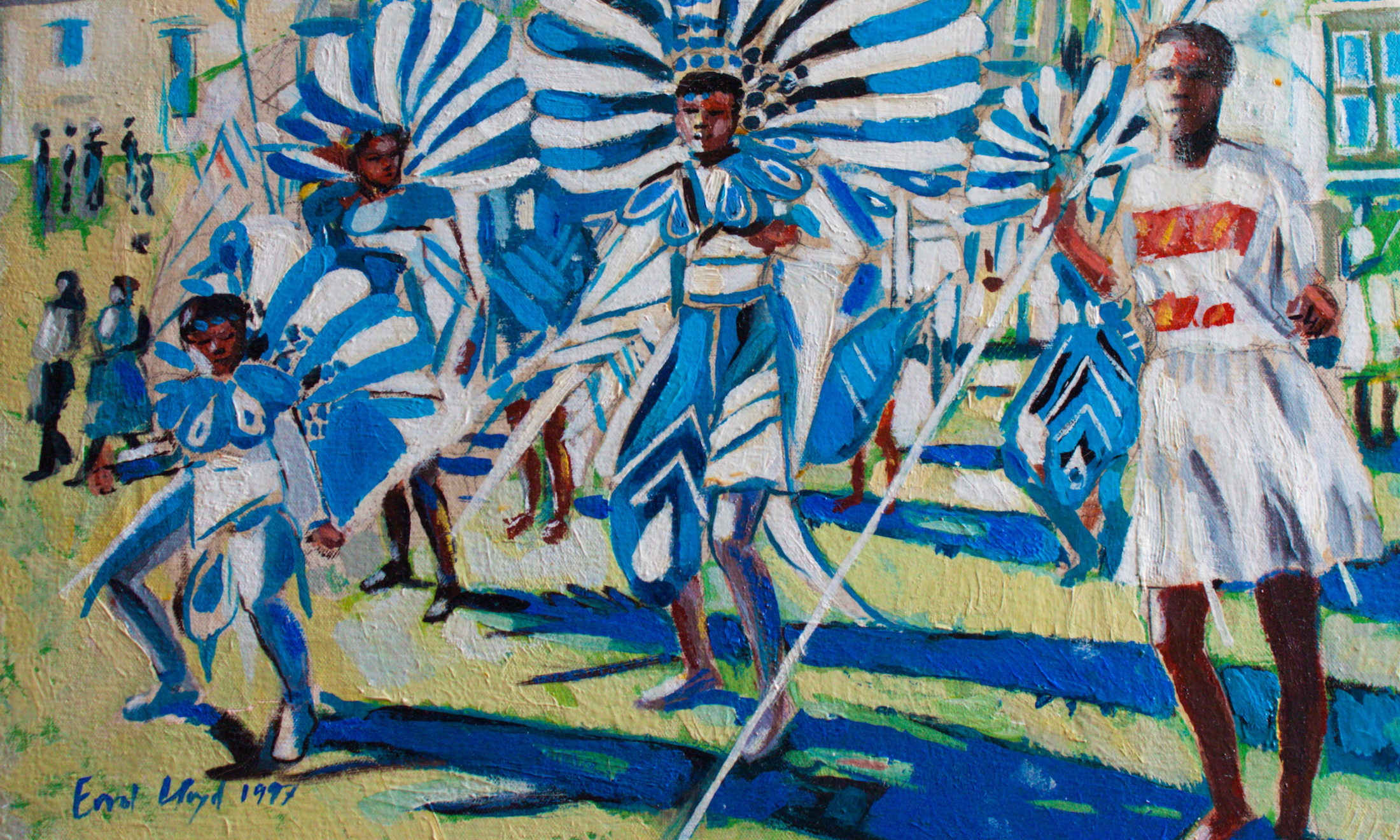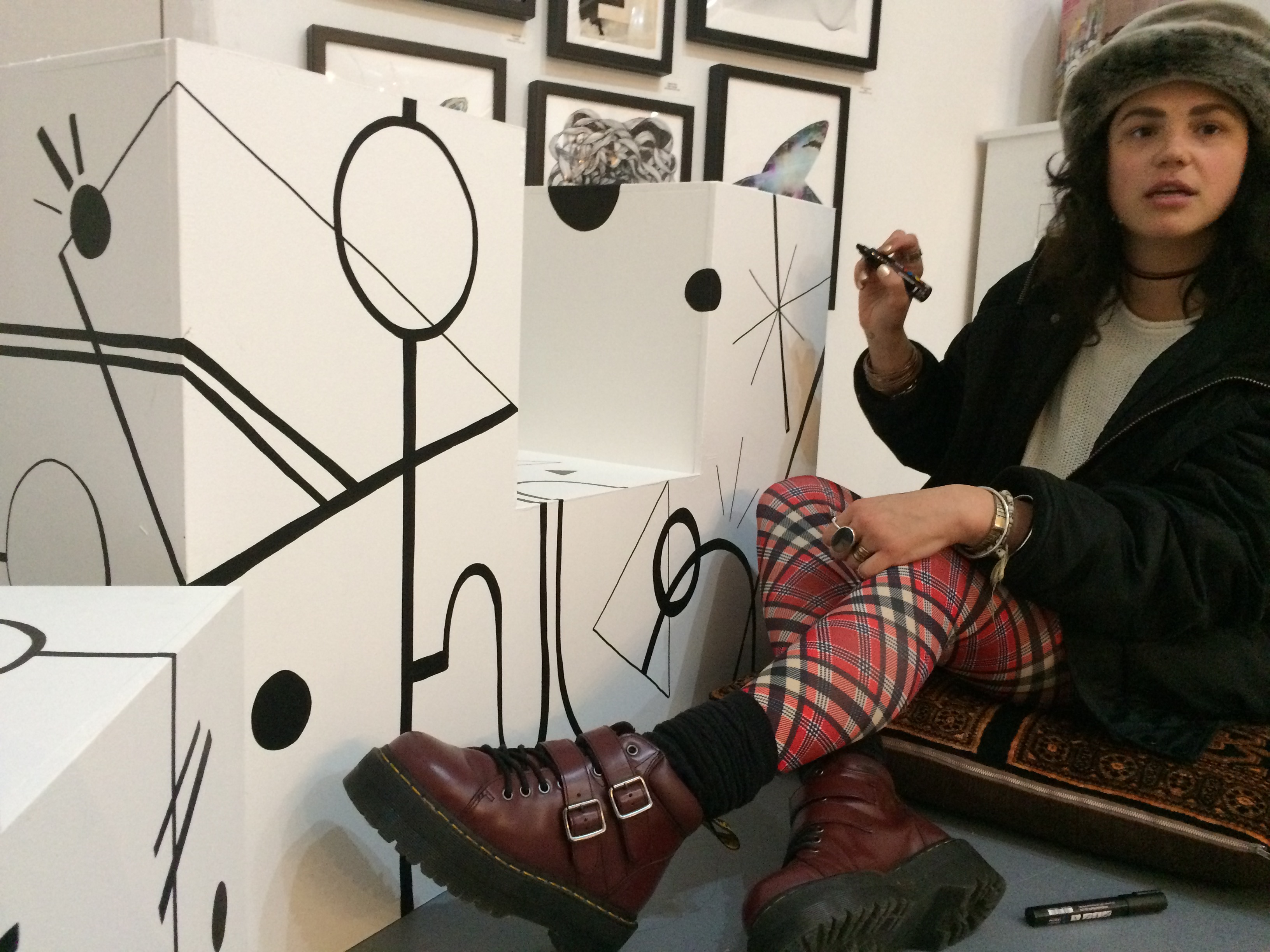
Sophie Bass is an illustrator and the manager of Bristol CoLAB, Bristol’s largest independent art shop. Gal-dem interviewed the creative, colourful woman who lives for heavy bass lines and spicy dinners. We spoke to the 25 year old about how her Trini heritage fuses with British musical offshoots in her works’ themes and how this collaboration of cultures can be a visually energizing one.
She tells me her work is “conscious…steeped in meaning and personal symbolism”. Further pressed, Bass describes herself as a “fiercely feminist artist,” a feature that can be easily ascertained from a cursory glance over the smallest sample of her works. “Every piece I create is coloured by my social and political beliefs,” Sophie tells me. “Sometimes this is very direct, in my work that celebrates womanhood and all its dichotomies: our strength and tenderness, and the powerful but nurturing instinct we are born with. We’re constantly dictated to. This world is run by white men who seek to govern our female bodies. By representing women of all shapes and colours I’m fighting against the patriarchy’s mythical image of ‘perfect’ femininity.”
And this is why her work is so often concerned with themes of human nature and sexuality: “Even in my work that is concerned with the environment, I still see from a viewpoint of respecting mother nature, seeing the earth as a maternal provider. I’m angry a lot about how women are treated all over the world. Sometimes, I can barely handle it, but I never make angry looking work. I think I instinctively create things I want to surround myself with.”
Sophie says her Trini heritage continues to influence her work, something apparent when observing the colour and patterns and inexhaustible vibrancy of her illustrations. Particularly central is the music. Sophie describes sound system culture as in her blood. “It’s a culture built upon the foundations of unity: dub, dancehall, soca, and all the British off shoots of that like jungle, drum and bass, dubstep. They are what my work celebrates, even if it’s on another subject matter. It’s that spirit and energy that I always have in my heart when I’m creating.’
I question whether Sophie feels her identity as a Woman of Colour increases the likelihood of her artwork to be political. I’m inquisitive as to whether she thinks this is an unavoidable consequence of being a member of a marginalised section of society or whether BME women are lazily pigeonholed into a reductive identity politics based corner.
“I believe the desire to express your experiences and struggles through art is an innate cathartic practice. However, I also think that to view all art by women of colour as politically minded is just another way to suppress and divide. Ultimately, it’s to say that an artist who doesn’t conform to the western art elite’s criteria has no place there unless they are making a challenging or revolutionary point.”
And has her personal style changed over the years?
“Over the past few years my style has changed immensely, but my reasons for creating have remained. I used to collage a lot, but the infinite possibilities of it gave me some mad existential crisis and when I discovered gouache I felt like I’d found my harmonious medium. My work went from using bold harsh lines inspired by the Bauhaus and Constructivism movements to more organic and free – and I think that’s because with paint it’s just you and the paintbrush, no external forces commanding your outcome. I work much more naturally now, and find my main sources of inspiration in naïve and folk art from worldwide cultures. The untrained eye is fascinating to me and I draw what I see in my head more than what I can see in front of me.”
We end our conversation on the topic of artists working for free. Why does she think we are often so unwilling to provide monetary compensation for the arts, does she think it symptomatic of a wider under appreciation of creative pursuits?
“This is a tough one and something I feel really strongly about, even though I’m guilty of working for free myself! There are so many fine lines here, I’ve done work for mates for free, but I’ve reached a point in my life where, more than anything, I don’t have the time to now. Artists so often undervalue their work. It’s a societal issue, the creative industry is underfunded and artists are constantly taken advantage of, to the point where it’s become so normalised. I remember once a woman saying how ‘cute’ it was that I was studying illustration at University, as though my creativity is just some childlike hobby, not my most valuable skill and, most importantly, my livelihood. This attitude perpetuates the myth that being an artist is not a ‘real’ job and therefore doesn’t deserve respect. In an artistic community where we don’t have much money we often rely on favours. It’s when big corporations ask artists to work for free that I feel really mad.’
I agree, the government cuts to the arts haven’t helped the legitimisation of arts based professions. But what does Sophie see for her own personal future? “My artistic ambitions?” She queries, “in the future I’d like to get a studio. At the moment I work from my bedroom so I find it hard to dissociate my work from my down time, which can end in madness! I’ve been dreaming of doing an MA too, to allow myself some focused time to develop, create and learn. But besides that, something fun always comes along and I can’t wait to see what’s next!’
All featured illustrations are the product of Sophie Bass. You can find more of her work on Facebook.

